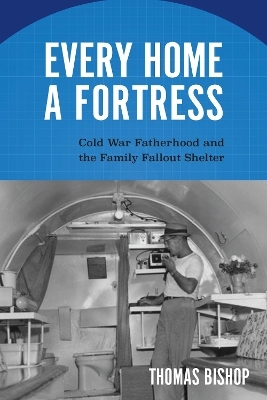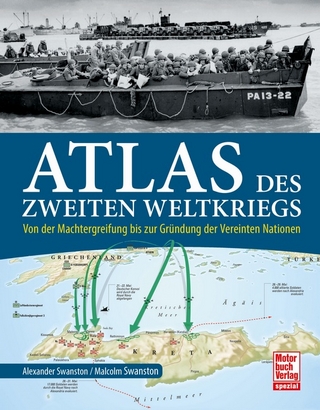
Every Home a Fortress
Cold War Fatherhood and the Family Fallout Shelter
Seiten
2020
University of Massachusetts Press (Verlag)
978-1-62534-483-0 (ISBN)
University of Massachusetts Press (Verlag)
978-1-62534-483-0 (ISBN)
Details the cultural history and personal stories behind an iconic figure of Cold War masculinity - the fallout shelter father. Thomas Bishop demonstrates that the nuclear crisis years of 1957 to 1963 were not just pivotal for the history of international relations but were also a transitional moment in the social histories of American fatherhood.
In Every Home a Fortress, Thomas Bishop details the remarkable cultural history and personal stories behind an iconic figure of Cold War masculinity -- the fallout shelter father, who, with spade in hand and the canned goods he has amassed, sought to save his family from atomic warfare. Putting policy documents and presidential addresses into conversation with previously unmined personal letters, diaries, local media coverage, and antinuclear ephemera, Bishop demonstrates that the nuclear crisis years of 1957 to 1963 were not just pivotal for the history of international relations but were also a transitional moment in the social histories of the white middle class and American fatherhood. During this era, public concerns surrounding civil defense shaped private family conversations, and the fallout shelter emerged as a site at which ideas of nationhood, national security, and masculinity collided with the complex reality of trying to raise and protect a family in the nuclear age.
In Every Home a Fortress, Thomas Bishop details the remarkable cultural history and personal stories behind an iconic figure of Cold War masculinity -- the fallout shelter father, who, with spade in hand and the canned goods he has amassed, sought to save his family from atomic warfare. Putting policy documents and presidential addresses into conversation with previously unmined personal letters, diaries, local media coverage, and antinuclear ephemera, Bishop demonstrates that the nuclear crisis years of 1957 to 1963 were not just pivotal for the history of international relations but were also a transitional moment in the social histories of the white middle class and American fatherhood. During this era, public concerns surrounding civil defense shaped private family conversations, and the fallout shelter emerged as a site at which ideas of nationhood, national security, and masculinity collided with the complex reality of trying to raise and protect a family in the nuclear age.
Thomas Bishop is senior lecturer in American history and program leader in American studies at the University of Lincoln.
Introduction
Chapter One The Log Cabin of the Nuclear Age
Chapter Two The Fallout Shelter Father on the New Frontier
Chapter Three Fatherhood in the Target Zone Building a Fallout Shelter in Colorado
Chapter Four Family Room of Tomorrow: Fallout Shelter Salesmen
Chapter Five Fatherhood, Survival and Violence at the Shelter Doorway
Conclusion Take to the Hills: Fatherhood and Survival in the Nuclear Age and Beyond
| Erscheinungsdatum | 16.04.2020 |
|---|---|
| Reihe/Serie | Culture and Politics in the Cold War and Beyond |
| Zusatzinfo | 10 illustrations |
| Verlagsort | Massachusetts |
| Sprache | englisch |
| Maße | 152 x 229 mm |
| Gewicht | 368 g |
| Themenwelt | Sachbuch/Ratgeber ► Geschichte / Politik ► Allgemeines / Lexika |
| Natur / Technik ► Fahrzeuge / Flugzeuge / Schiffe ► Militärfahrzeuge / -flugzeuge / -schiffe | |
| Geschichte ► Allgemeine Geschichte ► Zeitgeschichte | |
| Geisteswissenschaften ► Geschichte ► Regional- / Ländergeschichte | |
| Sozialwissenschaften ► Politik / Verwaltung | |
| Sozialwissenschaften ► Soziologie ► Mikrosoziologie | |
| ISBN-10 | 1-62534-483-X / 162534483X |
| ISBN-13 | 978-1-62534-483-0 / 9781625344830 |
| Zustand | Neuware |
| Haben Sie eine Frage zum Produkt? |
Mehr entdecken
aus dem Bereich
aus dem Bereich
von der Machtergreifung bis zur Gründung der Vereinten Nationen
Buch | Softcover (2023)
Motorbuch Verlag
24,90 €


